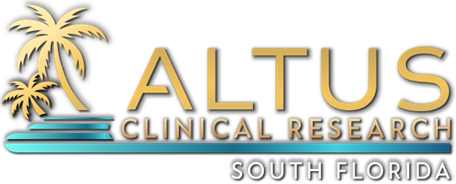How AI Is Making Promising Strides in the Field of Medicine
There can be no doubt that artificial intelligence is spearheading the next industrial revolution. It is seen in a wide range of fields that stem beyond what people typically think about when discussing technology. One of them is in medical research. AI is offering a promise of being able to tackle some of the most challenging medical challenges facing mankind.
Although Early Days, the Future Seems Bright
Artificial intelligence (AI) is in its early days. Still, it is causing a notable shift in how clinical research is done. By including machine learning (ML), researchers can approach their tasks with a greater level of accuracy and speed than ever before. This means that frontline healthcare workers are able to offer better care to their patients.
At Altus Research, we have always been committed to advancing medicine through community partnerships. Artificial intelligence must be a key part of advancing medicine in the 22nd century. This is because, in part, clinical decision-making has always needed statistical insight. In the past, researchers looked at patterns within data as mathematical equations. However, AI now allows scientists to see complex associations that can’t be easily identified via traditional equation-based statistic analysis.
A human clinician will always play an integral role in healthcare. That said, a human clinician has limitations that the data-rich computer algorithms associated with AI do not. AI can process and observe large amounts of information with unbelievable accuracy. One surprising example is what was seen in a Stanford study. AI had the ability to identify and classify images of skin lesions as to whether they were malignant or benign cancers with an accuracy that was on par with that of a board-certified dermatologist. More surprising still is AI’s ability to add a level of clarity to areas where there may be some disagreement among clinicians. For example, AI can add clarity to identifying tuberculosis seen on chest radiographs.
How AI Currently Drives Medical Research
Ask 100 people their definitions of AI, and you’ll receive varying responses. However, there’s a general consensus that AI comprises computer technology performing tasks that once required human intelligence, such as speech recognition, visual perception, language translations, and decision-making.
In medical research, AI analyzes and identifies patterns in complex databases, enabling faster, more precise, and cost-effective data analysis compared to traditional methods. This increased speed and reduced spending leads to improved outcomes.
Medical diagnostics, used to detect and treat specific conditions and diseases, sees significant advancements with AI. For instance, collaborating with UK partners, Moorfields Eye Hospital in London is developing technology to address macular degeneration in aging eyes.
Personalized/precision medicine, considering genetics, environment, and behavior, aims to create treatments tailored to individual or group needs rather than a one-size-fits-all approach. AI plays a crucial role in developing targeted treatments for complex diseases, allowing doctors to analyze vast datasets that were previously too convoluted for meaningful insights.
Altus Research: Transforming Clinical Trials in South Florida
Altus Research, a privately owned clinical research site in South Florida, brings extensive experience to Phase I, Phase II, Phase III, and Phase IV clinical trials. Seamlessly integrating a highly trained research team with partner investigators’ private medical practices, Altus Research focuses on advancing clinical research. Contact us today or fill out an online contact form to schedule a consultation or appointment. We’re eager to collaborate with you, leveraging the latest technology to address your health challenges successfully.


